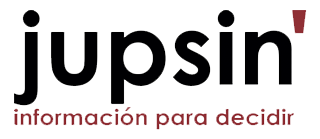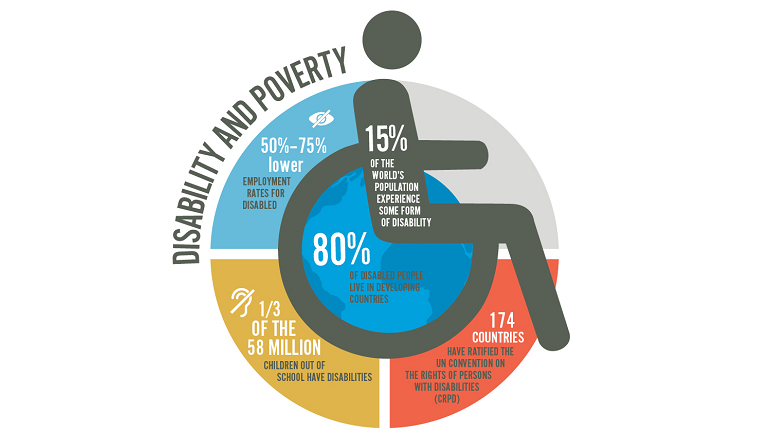Persons with disabilities: stigma, discrimination, exclusion… – At the Global Disability Summit, co-hosted by the United Kingdom Department for International Development (DfID) in partnership with the Government of Kenya and the International Disability Alliance, the World Bank Group (WBG), along with other Summit participants, announced its set of ten commitments to accelerate global action for disability-inclusive development in key areas such as education, digital development, data collection, gender, post-disaster reconstruction, transport, private sector investments, and social protection.
In line with the WBG’s strategy to develop human capital around the world, the World Bank Group Commitments on Disability-Inclusive Development aim to help developing countries invest more – and more effectively – in persons with disabilities and in accessible services.
Persons with disabilities face stigma, discrimination, and exclusion
“It is past time that the voices of a billion people around the world living with a disability are heard – this is a truly powerful group, whose potential is far too often left on the sidelines,” said Kristalina Georgieva, Chief Executive Officer of the World Bank.
“Economic growth and poverty reduction depend on equal opportunities for everyone, and today we are committing to do more and do better to make sure that people with disabilities have an equal chance to succeed.”
More than one billion people worldwide – including an estimated 800 million in developing countries – experience some form of disability
More than one billion people worldwide – including an estimated 800 million in developing countries – experience some form of disability, according to the World Report on Disability by the World Bank (WB) and World Health Organization.
Persons with disabilities face stigma, discrimination, and exclusion from accessing jobs and services, such as education and health care, and they consistently fare less well than their non-disabled peers in development gains.
The commitments build on the WBG’s ongoing efforts to respond to the urgent need for accelerated action at scale to achieve disability-inclusive development in support of the 2030 Agenda for Sustainable Development.

Persons with disabilities face stigma, discrimination, and exclusion from accessing jobs and services, such as education and health care.
The ten commitments
- Ensuring that all WB-financed educationprograms and projects are disability-inclusive by 2025.
- Ensuring that all WB-financed digital development projects are disability sensitive, including through the use of universal design and accessibility standards.
- Scaling up disability data collection and use, guided by global standards and best practices, such as using the Washington Group’s Short Set of Questions on Disability.
- Introducing questions on disability into the Women, Business and the Law survey to better understand the economic empowerment of women with disabilities.
- Ensuring that all projects financing public facilities in post-disaster reconstruction are disability-inclusive by 2020.
- Ensuring that all WB-financed urban mobility and rail projects that support public transport services are disability-inclusive by 2025.
- Enhancing due diligence on private sector projects financed by the International Finance Corporation (IFC) regarding disability inclusion.
- Ensuring that 75 percent of WB-financed social protection projects are disability-inclusive by 2025.
- Increasing the number of staff with disabilities in the WBG.
- Promoting the Disability Inclusion and Accountability Framework among World Bank staff as a way to support the WB’s new Environmental and Social Framework (ESF).
Fragility and conflict, education, social inclusion, transport, and water
Particularly for World Bank projects, these commitments, together with the ESF, which includes strong provisions to safeguard the interests of persons with disabilities in project-affected communities, will enhance development opportunities and benefits for all.
Over the last five years, the World Bank has significantly ramped up its work on disability-inclusive development across multiple sectors
The commitments build on the Bank’s work on disability inclusion over the past 15 years, including hosting the first-ever Disability and Inclusive Development conference in 2002, providing the initial funding of the Washington Group on Disability Statistics, and publishing the landmark World Report on Disability in 2011, together with the World Health Organization.
Over the last five years, the World Bank has significantly ramped up its work on disability-inclusive development across multiple sectors, such as fragility and conflict, education, social inclusion, transport, and water. For example:
- The World Bank has pioneered work in demobilization and reintegration projects to support ex-combatants with disabilities in the Democratic Republic of Congo, Rwanda, South Sudan, and Burundi. As an example, in Rwanda, the World Bank supported accessible housing for ex-combatants with disabilities, and provided income generation support for over 2,800 ex-combatants with disabilities, including skills training, assistive devices, transportation, and setting up cooperatives.
In Palestine, the Bank supported the provision of social services for persons with disabilities and their families in areas where the Palestinian Authority had no access
- The World Bank has provided financial and knowledge assistance for India’s Sarva Shiksha Abhiyan (Education for All) program, which has placed 2.7 million children with disabilities in mainstream schools.
- In Palestine, the Bank supported the provision of social services for persons with disabilities and their families in areas where the Palestinian Authority had no access, as well as microcredits and skills development for adults with disabilities and women with children with disabilities.
- In Indonesia, the World Bank is working with around 200 villages to build inclusive water access and community sanitation infrastructure.
As part of its engagement in the Summit today, the WBG also signed The Global Disability Summit 2018 – Charter for Change along with the United Kingdom Department for International Development (DfID) and other Summit participants. The global Commitments laid out in the Charter reflect and reinforce the World Bank Group Commitments on Disability-Inclusive Development.














